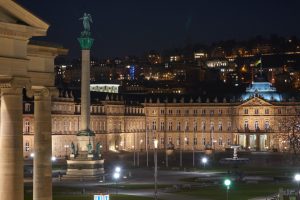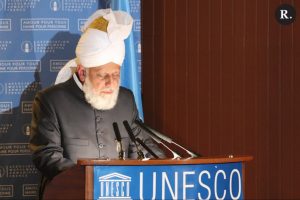
Mahrukh Arif-Tayyeb, UK
France has just witnessed a tumultuous week in which the country was shaken by five nights of serious disorder and destruction. The violent riots sparked after Nahel Merzouk – a 17-year-old boy of Moroccan and Algerian descent – was shot by the police in Nanterre, located in the suburbs of Paris. The officer who shot first claimed he acted out of legitimate defence as Nahel was supposedly driving at him. However, video evidence filming the incident suggests the police officer shot him at point blank range.
The outrage sparked by this incident deeply attacked the structure of the state, as rioters went on looting shops, burning cars, infrastructure, and even targeted mayors’ personal residences. While Nahel’s grandmother shared her grief and anger towards the officers responsible for taking her grandson’s life, she urged the rioters to stop “destroying” and using Nahel as an excuse to damage infrastructure and buildings used by the common people. She made it clear that she wants things to calm down and wants to see the policeman who killed her grandson as well as those who are attacking the police and creating chaos punished by the justice system in which she “firmly believes”.
If one is to look at events closely, the riots projected once again the clear picture of a fractured society torn between two visions of France that have constantly been clashing with one another for the past decade.
In 2005, France witnessed its longest riots which lasted three weeks. The unrest started within similar circumstances, where the police were investigating a reported break-in at a building site and a group of local youths scattered in order to avoid interrogation. Three of them hid in an electrical substation where two died from electrocution, resulting in a power blackout. While it was officially not established whether the police suspected these individuals or a different group, the incident ignited huge tension and unrest in suburbs compelling the authorities to declare a state of emergency that was later extended for three months.
In 2005, the then president Jacque Chirac tried to appease the tensions by reassuring the young inhabitants of suburbs that they are equally the children of the Republic. However, the then Interior Minister, Nicolas Sarkozy, sparked outrage by using a derogatory term for children of suburbs calling them “thugs” and announcing measures to strengthen the power of the police. Far-right parties have constantly exploited such incidents by putting the blame on loose immigration policies that have “allowed” these French citizens of North African descent to act against national cohesion and scoring political points. They went as far as suggesting that the “Islamic factor” has pushed the rioters to act in a destructive manner.
However, many social experts have unanimously pointed out that the problem lies elsewhere and can be explained by deep rooted social discrimination. In fact, in 2005, the French intelligence services found no link between Islam and the riots as they have pointed out that “many children of the native French have also taken part” in the riots.
The lack of opportunities and unemployment in France’s poorest communities living for its majority in suburbs, is a reality many leaders have turned a blind eye to and are still unwilling to prioritise. The majority of the inhabitants of these suburbs are capable, talented and willing to integrate into the wider society but experience discrimination at various levels of society.
In short, this time around again, the government has shifted the blame on the parents and decided to “punish” them for the misconduct of their children by cutting aid or sending them to prison instead of their minor children. Macron even suggested blocking access to social media – where these youngsters have been organising themselves – violating individual freedom and the fundamental rights of his citizens.
The general perception given by this violent episode of social unrest and uprising has no different conclusions than the 2005 riots. France has once again chosen to address this long standing social issue by authoritative measures, empowering the empowered while overlooking the main issue and failing to establish a bond of trust with its least privileged communities. It also failed to acknowledge the UN recent request to “seriously address the deep issues of racism and discrimination in law enforcement” claiming these allegations to be baseless and untrue.
Meanwhile, following this tragic incident two fundraisers have been set up. The one for the police officer charged with voluntary homicide was set up by a former French politician Jean Messiha who stood as a candidate for the far right party led by Marine Le Pen – and later worked as a spokesperson for the party of Eric Zemmour, another far-right candidate in last year’s presidential election who openly holds racist and fierce views against Islam. The fundraiser for the latter reached a million euros while the fundraiser for Nahel reached 400,000 euros, clearly depicting a pattern of systemic racism within the society. While Nahel’s grandmother expressed her grief over the fundraiser for the police officer greatly exceeding the support for her grandson, she firmly stood against resorting to violence.
Muslim communities in France have also called for appeasement and never encouraged violence as a resort to social injustice. The leader of the Ahmadiyya Muslim Community, His Holiness Mirza Masroor Ahmad (May Allah be His Helper) has never failed to openly condemn such acts of looting, as they do not reflect Islamic teachings in any manner. Islam teaches to seek patience through prayer in times of adversity and places the sanctity of human life at a high pedestal. To put it in His Holiness’ own words following the tragic death of George Floyd, “innocent lives matter”, regardless of their caste, creed, religion or race. In the same vein, the Holy Prophet (sa) has clearly stated that love for your country is part of faith and therefore no true Muslim should ever think of causing harm to his country and/or his inhabitants, no matter how unjust the ruler is.
In political philosophy, the social contract models the legitimacy of the authority of the state over the individuals. To put it in simple words, the social contract refers to the consent of citizens to surrender some of their freedoms and submit to authority in exchange for the protection and maintenance of social order. However, in the past years France has had to deal with many social movements – be it the Yellow Vest, pension reform or the recent riots – highlighting Macron’s inability to connect with his people and address their most basic concerns adequately.
The riots have only deepened the evident fracture between a leader that keeps curbing individual freedoms while failing to acknowledge, understand and protect his most deprived citizens, offering the world a dreadful display of social chaos and anarchy.
About the Author: Mahrukh Arif-Tayyeb is a French Muslim currently living in the UK. She holds a Masters degree from Ecole des Hautes Etudes en Sciences Sociales – a prestigious School of Social Sciences in Paris. She has previously worked as a journalist for a French newspaper. She is the editor of the Women’s Section fot The Review of Religions in French.




Add Comment